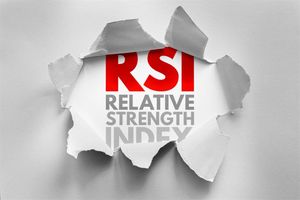(BPT) - Imagine taking a simple daily step that might protect your heart from another life-threatening attack. This American Heart Month, fight inflammation to help prevent future heart attacks.
February is American Heart Month - a time to focus on preventing heart disease, the leading cause of death for both men and women in the U.S. If you or someone you love has experienced chest pain (angina) or a heart attack in the past, it's critical to understand that you face a higher risk of another attack. According to the U.S. Centers for Disease Control and Prevention, out of the 805,000 heart attacks that occur every year, 200,000 happen to people who already had one.
This can feel overwhelming and frightening, but there's hope. If you're already making strides to keep your cholesterol in check, you can take additional steps to reduce your heart attack risk even further. One of the most powerful yet lesser-known ways to protect your heart is by checking and treating inflammation, often measured through a simple blood test called high-sensitivity C-reactive protein (hs-CRP).
A prior study showed that adding low-dose colchicine, 0.5 mg on top of a statin, affords an additional 31% risk reduction of a cardiovascular event or heart attack.
How Inflammation Fuels Heart Attacks
Inflammation is the body's natural response to injury or illness. You've seen it in action when a small cut turns red and swollen. However, when inflammation becomes chronic - such as in your blood vessels - it can damage healthy tissue.
According to Johns Hopkins Medicine, cholesterol buildup (atherosclerosis) in the arteries can trigger inflammation, creating a dangerous cycle of more plaque and an increased risk of heart attacks or strokes. If left untreated, chronic inflammation can damage healthy tissue like your arteries and heart.
Why You Should Measure hs-CRP
Having your doctor measure hs-CRP levels offers a clearer picture of your cardiovascular health. A recent study published in The New England Journal of Medicine found that measuring three (3) levels in a patient's blood helps predict your risk of future heart attacks and strokes - even 5 or 10 years down the road. The levels to test are: LDL cholesterol (commonly known as "bad" cholesterol), a fat-carrier called lipoprotein(a) (or Lp(a)) and hs-CRP.
Another study suggests that hs-CRP might be an even stronger predictor of cardiovascular events than LDL cholesterol alone. If your hs-CRP levels are high, your doctor may recommend adding an anti-inflammatory medication to your treatment plan.
Adding Low-Dose Colchicine, 0.5 mg to Fight Inflammation
If you are already using statins, the addition of low-dose colchicine, 0.5 mg can further reduce the risk of cardiac events, including the possible prevention of a second heart attack or a stroke.
"The importance of treating inflammation as a key contributing factor to heart disease and the risk of cardiovascular events is clear," said Andrew M. Freeman, M.D., F.A.C.C., F.A.C.P., director of clinical cardiology, director of cardiovascular prevention and wellness, and a professor of medicine at National Jewish Health in Denver. "By adding low-dose colchicine, 0.5 mg to a patient's treatment regimen alongside a healthy diet and exercise, we can now better treat our patients and further reduce the risk of life-threatening events - even in those who have already suffered from a heart attack or stroke."
Low-dose colchicine, 0.5 mg, is a once-daily, single oral tablet indicated to reduce the risk of myocardial infarction (MI), commonly known as a heart attack, stroke, coronary revascularization, and cardiovascular death in adult patients with established atherosclerotic disease or with multiple risk factors for cardiovascular disease. It is the first and only therapy the Food and Drug Administration has approved as an anti-inflammatory medication to reduce the risk of a cardiovascular event, including heart attack or stroke.
Don't Wait - Take Action
Whether you've already experienced a heart attack or you're at risk of having a cardiovascular event, it's time to take action. This February, talk to your doctor about testing your hs-CRP levels and if adding an anti-inflammatory treatment may be right for you.
Learn more about your risk and the steps you can take to support heart health at CVDInflammation.com.
Remember: treating inflammation could be the difference between another heart scare and a healthier tomorrow. Your heart - or your loved one's - is worth the conversation.
LD-PM-DP-021125-01-01





